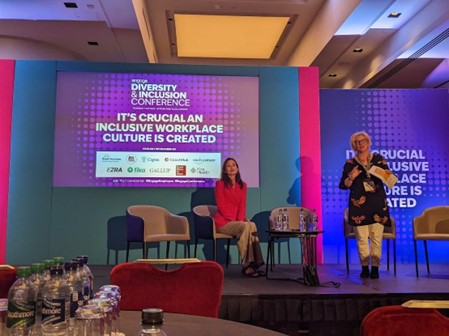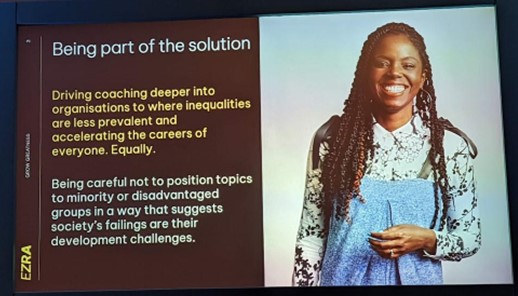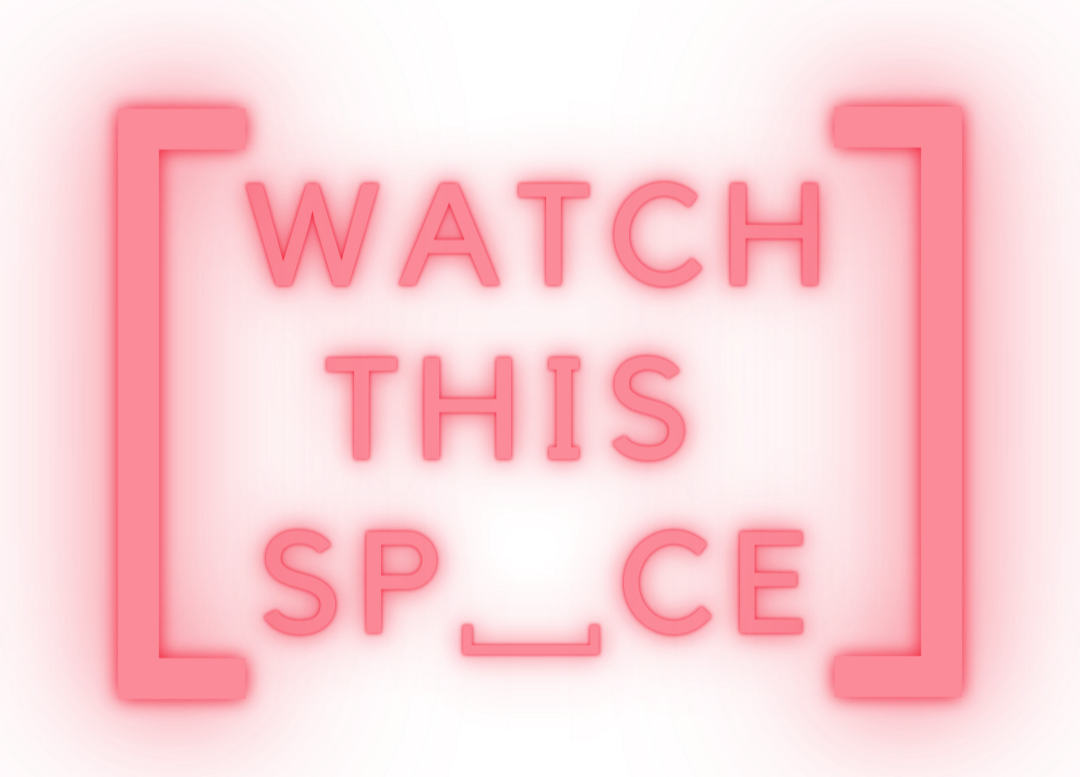Diversity and inclusion is developing at a rapid rate, so what will it look like in the future? Check out what the industry experts are saying about the climate of D&I, where it’s going and how to make sure we are not leaving anyone behind!
See the change you want to be: are we too charaded?
Karen Dobres, elected Director of Lewes FC, delivered a thought-provoking discussion centred around society’s focus on the gender pay gap and how this needs to be expanded to include the gender opportunity gap. Football is a prime example of an industry where the pay gap is vast, but the gender disparities go beyond pay, extending to funding, marketing, resources, iconography and training. The community owned club of Lewes FC is the first football club in the world to assign equal playing budgets, working only with sponsors who are aligned with this approach.

When discussing how they encouraged women to attend the women’s matches (to great success), Karen raised a compelling point about the experience of watching female football players. In a world where women still operate under a tacit expectation of performativity, seeing the female footballers “openly uncharaded” – loud, taking up space and unconcerned with how they are being perceived – is certainly impactful. When you are used to adhering and aspiring to societal demands of beauty, elegance and silence, witnessing this disconnect from charade is electrifying. It made me consider the power of ocular proof and how this can resonate more powerfully at times than verbal calls for change, where eloquence may not match the visceral effect of the tangible. The difference between being a witness and hearing a testimony. If nothing else, Lewes Women FC have certainly gained a spectator.
The issues in coaching and leadership expectations: who’s in and who’s out?
Dan White, the Leadership Development Specialist at Ezra Coaching, delivered a poignant talk, citing the issues in coaching and how it hasn’t been inclusive. Research shows that only 1 in 4 women are coached, dropping to only 1 in 25 women of colour – this is a massive issue, as coaching can be a distinct predictor of success in business, with many leadership roles being acquired after coaching.

Dan suggested that gender equality is perhaps impeded by our tendency to be overly congratulatory of male allies of women, highlighting that this should be the norm, not the exception to be celebrated. He voiced that there is not a “women in leadership” issue, but a “men in care” issue. His stand was that women have proven they are highly competent leaders, and that the qualities some perceive as lacking in women (assertive, overly confident, direct) are perhaps by-products of toxic masculinity and should not be celebrated or encouraged in the leadership arena. Dan noted that if more men took up care roles, it would not only create more space for female leadership, but also remove the expectation and reduce the glorification of women who can “do it all” – care for children and elderly relatives as well as being a top boss. This problematic celebration of women doing everything, in reality, is not a great deal for women who want to be equal, rather than a supposed superwoman constantly on the precipice of burnout. Dan raised important points about some of the issues with the current landscape of the coaching industry and society as a whole and provided intriguing solutions that could lead to inclusivity for all.
Are we WEIRD? How is it affecting our mental health?
Neil Shah is the founder of International Wellbeing Insights and Chief De-Stressing Officer of The Stress Management Society. He delivered a talk with many intriguing takes.
Neil spoke about the acronym WEIRD, standing for Western Educated Industrialised Rich and Democratic, referencing a book by the term’s creator, Joseph Henrich, that examines the history and psychological variation with approaches from cultural evolution and evolutionary psychology. Psychologists use a test which gives subject a fill in the blank “I am …” statement which predicts if they are WEIRD. If the subject fills in the blank with ‘lawyer’, attractive’, ‘ambitious’, etc., it is indicative they are WEIRD. Comparatively, subjects from non-WEIRD areas that value community are more likely to fill in the blank with things like ‘Paula’s son’ or ‘Luis’s neighbour’, identifying themselves within the community as opposed to the individualistic responses of WEIRD people.
“This focus on personal attributes, achievements, and membership in abstract or idealised social groups over personal relationships, inherited social roles, and face-to-face communities is a robust feature of Weird psychology, but one that makes us rather peculiar from a global perspective.”
- Joseph Henrich, The Weirdest People in the World
Neil went on to discuss how this lack of community in western countries could explain, in part, why residents of these countries have comparatively worse mental health than countries that place a strong emphasis on community.
Quick Takes
Cancel Culture: Can we cancel something/someone and end the conversation there? The problem may feel self-evident to some, but what about others, people who grew up differently? Older generations who have been used to certain language or behaviours for years? Is “cancellation” really effective unless we discuss why? “Don’t tell someone what to do, educate them to be able to discover that choice”.
Generational Discrimination: Both Neil Shah and Sandy Downs spoke about the prevalence of generational discrimination and how underrepesented it is in diversity conversations. Do you have an experience of generational discrimination? We’d love to know more and keep the conversation going!
Workplace Networks: As Neil emphasised, there is a correlation between community and mental health. Daniel Sado, in his talk, emphasised the value of networks and how they improve work relationships, create genuine meaning and collective identity in the workplace, improving employee wellbeing and retention!
The conference brought up a wide range of issues for which employers and employees alike are still battling to find answers. It’s clear that certain things are still needing to change – but what will that look like? Join us at the Reimagination at Work Conference to discover answers and be part of the solution. We can’t wait to see you there!
